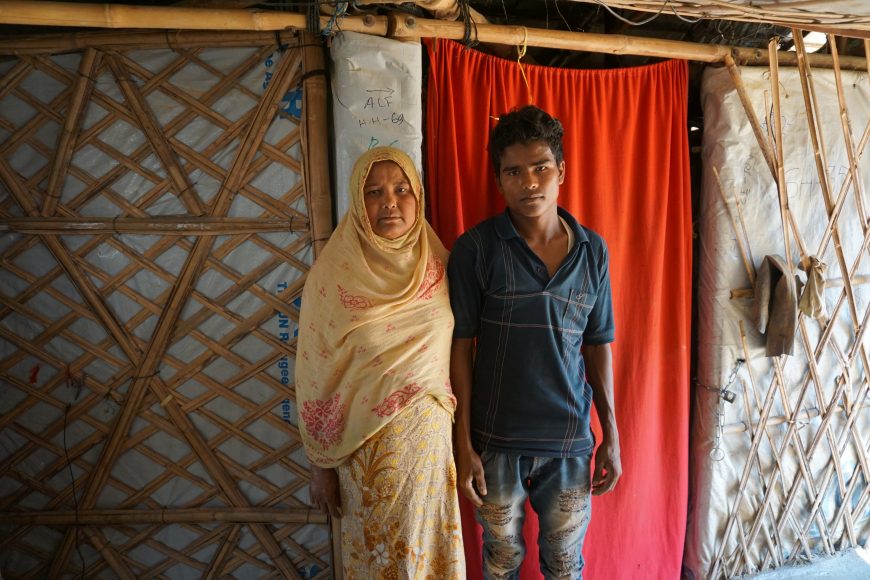In the sprawling, chaotic Kutupalong “mega camp” where over 900,000 Rohingya refugees reside, finding any single person in the endless labyrinth of dust, huts, and bamboo bridges can seem like an impossible task.
When Azara heard that her son Faruk had returned to the camp looking for her after over a year of separation, she knew that locating him would be a monumental endeavor. Azara and her family fled their home in Rahkine State, Myanmar in August 2017 at the apex of the Rohingya refugee crisis. Amidst the turmoil, she made her way to the mega camp in Bangladesh and found shelter with her disabled husband, losing Faruk along the way.

A traumatic reality
This situation was unfortunately quite common among the families who fled Myanmar. Due to the sheer magnitude of the migration and the speed at which the major waves of population movements occurred at the end of 2017, thousands of families were separated during their escape from ethnic violence in their ancestral homeland, losing each other among the panicked frenzy to cross the border into neighboring Bangladesh. Hundreds of thousands of Rohingya settled in the Kutupalong mega camp, making it the largest refugee camp in the world, while many others dispersed throughout South Asia.
Supporting a new community
The international humanitarian community responded rapidly to the influx of Rohingya refugees across the border by organizing settlements and setting up community support structures in the camp, in coordination with the Government of Bangladesh. Camp activities and organizations need to be managed. ACTED, as a trusted Camp Coordination and Camp Management (CCCM) partner globally, was brought in by UNHCR in partnership with Helvetas Swiss Intercooperation to manage four (now expanded to five) camps within the mega camp, benefiting approximately 133,000 refugees.
A successful reunion
When they fled Myanmar, Azara and Faruk were separated indefinitely with no means of direct communication. But in February 2019, Azara heard rumors that Faruk had been living in India all along, and that he had recently returned to the mega camp in search of his family. Azara came to one of ACTED’s help desks and requested emergency assistance to find her son. ACTED staff contacted UNHCR’s Protection Team and they worked together to find Faruk. Within days, the search party located Faruk in a distant part of the mega camp and brought him to Azara’s home, reuniting a family that had been separated for over a year. They now live together peacefully in ACTED’s camp, and stories like theirs offer hope for many other families who have faced these hardships. Their story also highlights ACTED’s efforts to support Rohingya refugees at the community level, leaving no individual without a voice.
Complaints and Feedback Mechanism (CFM) are centrally located “help desks” in each camp where refugees can seek assistance for any sort of issues they face in their daily lives.